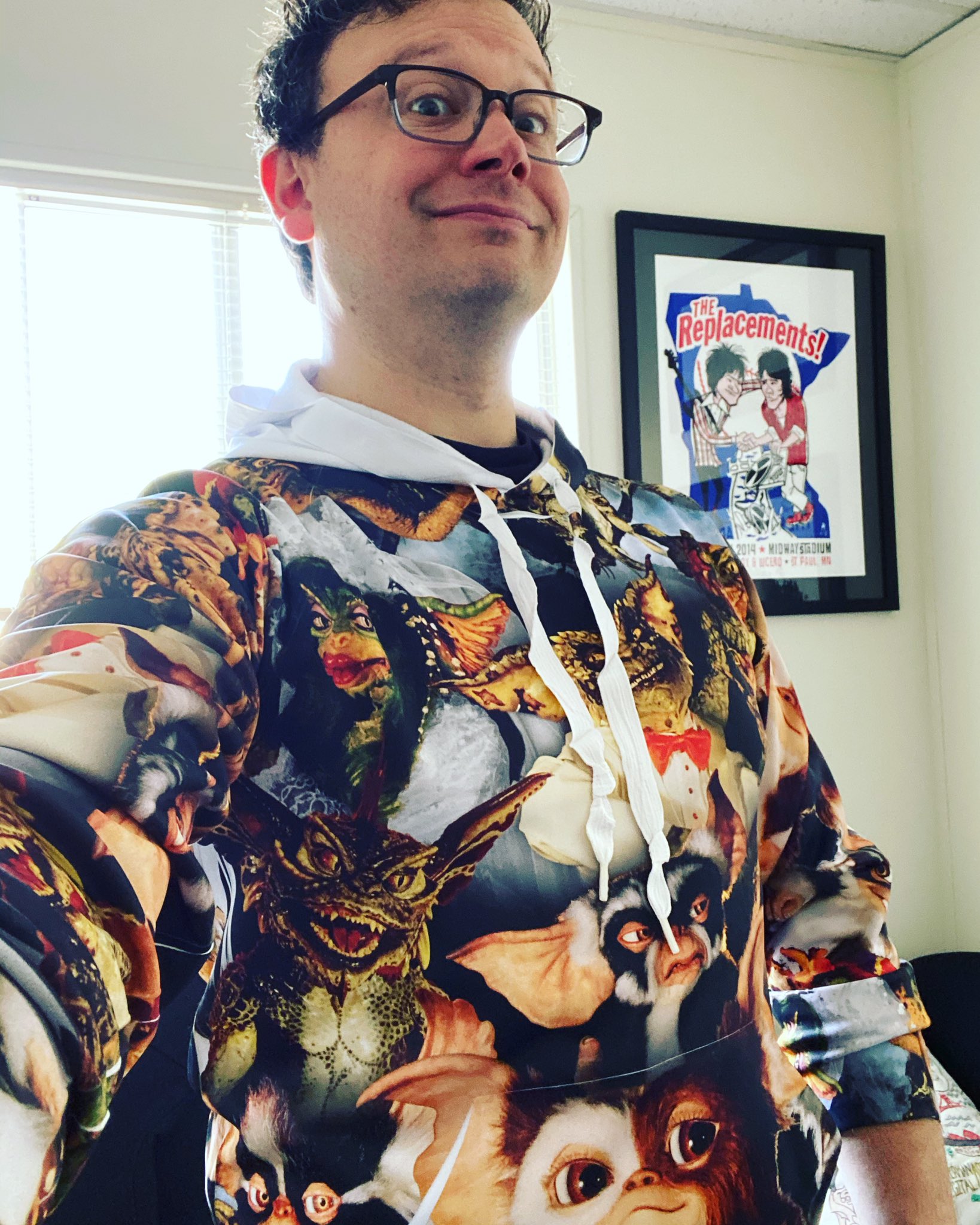I am a very lucky because I’m married to a super talented TV writer, executive producer, and show runner. I wanted to share his tips and advice for writing for TV. Yes, he has a long list of amazing TV credits (The Simpsons, The Daily Show With Jon Stewart, Robot Chicken, The Mighty B!) and been nominated for an Emmy award, but he also has had pilots and scripts that you’ll never see. Brendan’s success is not simply an overnight accident. He’s worked hard to move ahead in the TV industry, and if I’ve learned anything from our marriage—it’s keep writing, keep trying, and don’t stop believing (which was the last song at our wedding).
Q: Everyone always asks, so I’ll ask it too: how do you get started in comedy TV writing?
Brendan: Everybody breaks in by a different method, and it seems like as soon as you find a way in, that passage is immediately sealed up so no one else can follow through it. That said, there are two constants to getting a job writing for TV: write and work in TV. I know it sounds simple to the point of being obnoxious, but it is the truth.
The most important thing for any aspiring writer, whatever the medium, is to write. Lots of people say they want to write, but only those who actually sit down, fight through the distractions, and produce a completed work are allowed to call themselves writers. So if you want to be a TV writer, write your own spec scripts or spec pilots. Spec scripts are when you write an episode of an established TV series to use as a sample of your work. Spec pilots are when you write the pilot episode of your own original series. In TV, these are what you use as writing samples to find an agent, impress a showrunner, and land your first gig. It is best to have one of each.
For the spec script, pick a series that is currently airing and best exemplifies the type of TV show you want to write for. Then study that series, analyzing its episode structure, the characters’ voices, and—if you’re writing a comedy—how many jokes per minute. Once you have that down, write a stand-alone episode of the series. The key is to show both that you’re a good writer AND that you can nail an established series’ voice.
For the spec pilot, write the script that best showcases your voice. This is the place to be original, so here are just a few tips:
- Make sure it’s a stand-alone story. You want your spec pilot to suggest there are 100 more stories you can tell with these characters, but don’t just write Act I of a longer tale.
- Don’t hold back. If you’re thinking, “Well this pilot introduces the characters, but the story gets really exciting in episode 7,” find a way to make your episode 7 your pilot. This is your chance to wow a reader, so use all your best ideas.
- Focus on your main character. Sure, you’ll want to introduce a whole cast, but keep your spec pilot’s story centered on your series’ main character. It’ll help you tell the strongest story.
The more you scripts write, the easier it gets. You’ll build your skills and your confidence. And you can never have too many writing samples. For me, I wrote 3 spec scripts—Futurama, Malcolm In The Middle, and My Name Is Earl (all popular at the time)—and one spec pilot before getting my first TV writing job.
Of course, writing is only half the battle. When getting started as a TV comedy writer, look for other work in TV production. Internships, production assistant jobs, and especially writers’ assistant gigs are great ways to network and get to know your industry. You’ll meet showrunners, writers, producers, even your fellow interns who might hire you down the road. Entertainment has a reputation of being about who you know, and it’s somewhat true. You don’t need to be buddies with George Clooney, but it does help if you already have a foot in the door. My college internship at The Daily Show with Jon Stewart is where my career began. It led to a production assistant job on the show, then a writers’ assistant gig, which ultimately opened the door to me writing on other shows. Too many people hold out for a writing position. Any TV job can lead to opportunities for you.
Q: What advice would you give to your younger writer self when you freshly graduated from New York University with a BFA in dramatic writing?
Dear Younger Me:
Ignore the naysayers and distractions and just finish the scripts. They are what will ultimately get you hired. And when you’re done, send those scripts out to agents and producers. You’ll need to be rejected dozens of times before you get hired for your first job, so the sooner you start, the sooner it’s over. And when those places reject you, take their criticism, but don’t take it to heart. As trite as it sounds, believe in yourself. If you wanted to anything else, you’d be doing it because writing is not easy. But you are writing because you love it and know you can do it.
Also, younger me, produce your own work. Shoot short films, put on sketch comedy shows, and so on. An agent or producer is far more likely to watch something than read something, and this shows you can finish a project.
Oh, and move to LA. Don’t give me that “NY is the best” spiel. Sure, NY is the best, but its changing seasons are overrated and if you want to write for television, it’s LA.
Before you leave NY though, drink a little less, younger me, to prevent some embarrassing moments. Only a little less, though, since those embarrassing moments are also the life experiences you’ll use later when writing comedy.


